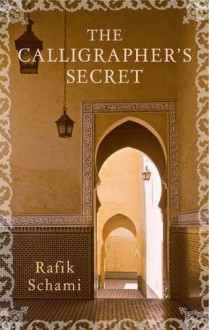
A sad story with some hopeful outcomes - from the New Yorker blog post by ELIAS MUHANNA:
". . . Maktabat al-Sa’eh (“The Pilgrim’s Bookshop”) is a Tripoli landmark, occupying a five-thousand-square-foot space in a grand, crumbling building that once served as an Ottoman police barracks. Before the fire, the labyrinthine warren of books had flaking paint on its walls and a leaky ceiling, but Father Sarrouj pays a pittance in rent and his landlords have neglected him. Crammed into the space are mountains of books, perhaps as many as a hundred thousand. The exact number is unknown, although the priest has used a computer to try to keep track of his inventory and, since 2005, to maintain a creaky Web site. Bearded and spectacled, he bears a passing resemblance to a more nebbishy Umberto Eco, but his appearance is belied by a rhetorical spryness typical of Levantine men of the cloth. Since Father Sarrouj began appearing on the nightly news, he has handled interviews with aplomb, fielding questions and citing Biblical and Koranic verses without skipping a beat.
Who started the fire? The circumstances are mysterious. Did the bookshop contain polemical writings insulting to Islam? Had Father Sarrouj authored an incendiary pamphlet about the Prophet Muhammad? Or were the arsonists somehow connected with the building’s owners, who had been trying to muscle the recalcitrant priest out for years? Rumors swirled as politicians, bishops, and muftis raced to denounce the crime and join the photo ops in front of the bookshop’s charred entryway. Even Salem al-Rafei, a Salafist sheikh who has preached jihad against the infidels in Syria, came to Father Sarrouj’s defense. For a few hours, every press conference and television interview conjured up fusty commonplaces about Lebanon’s importance as a symbol of coexistence, a mosaic of religious communities, the cradle of civilization, and the home of, yes, the people of the book. . .
Astonishingly, the Maktabat al-Sa’eh fire prompted something that two years of suicide bombings and assassination attempts had not: a public outcry. The Lebanese have absorbed the blows of the Syrian proxy war by desensitizing themselves, an old habit born from years of muddling forward through violence, decaying infrastructure, and communal strife. When Father Sarrouj’s books went up in flames, though, a nerve was apparently struck. Within hours, civil-society groups set up a barn-raising effort to secure and catalogue the undamaged books, clean up the shop, and build new shelving. Someone launched a fundraising initiative. Book drives were organized around the country.An international courier announced that it would ship books from anywhere in the world to Lebanon to replenish Father Sarrouj’s collection. "
Link

 Log in with Facebook
Log in with Facebook 








